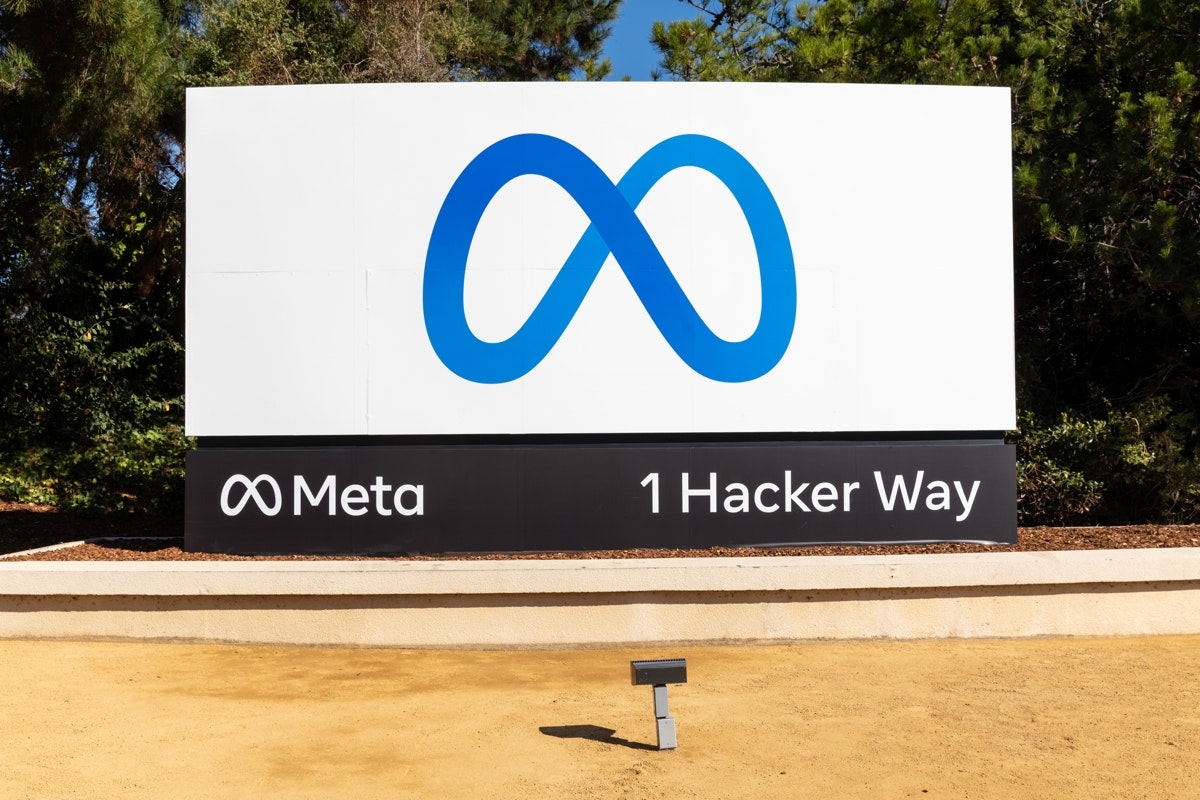Facebook’s Meta facelift
Can a new name signal a fresh start for the troubled social media giant, and what are the hidden challenges Meta faces in its grand plan for reinvention, asks Wayne Deakin
Facebook is changing its name to Meta. Well, the company behind the social platform is having a facelift, at least. But the news comes at a torrid time in Facebook’s history, and it takes more than a new logo to unlock the true potential of any brand refresh.
Parent company rebranding is a well-trodden route in big tech. In 2015, Google re-organised under a holding company called Alphabet, underlining that its interest and ambitions extended beyond its search engine to things like health tech and driverless cars. In 2016, Snapchat became Snap Inc, debuted its first Spectacles camera glasses, and forevermore referred to itself as “a camera company”. In September 2021, Clubhouse renamed itself Shortcut.
But unlike most other categories of business, tech firms have a particular mindset when it comes to rebranding. The fact is that most product-led companies start out in a product mindset with brand as an afterthought, and in big tech this is even more so.

Perhaps for obvious reasons, the primary focus of those with a product or engineering background is first making the product and service, and then ensuring it’s the best there is – not so much in terms of consumer narrative, but tech solutions and user experience.
Tech companies understand the need to have strong brands – just look at Apple – but these need to extend way deeper than company sectors. As with automotive and service businesses, they offer a doorway relationship with access to an array of technology products. The brand is an end-to-end customer experience with navigation flow, check out, or notifications saying as much about the business as any marketing campaign.
HOW TECH BRANDS DIFFER
Brand in tech is more like a systematic relationship that is constantly moving, flexing and optimising – just as technology has to continuously stay ahead of factors, such as security, data legislation and third-party commerce integration.

It’s less a linear static brand – like a whiskey company, say, that might update its product once a year with new packaging. Instead, it’s more an operating system flexing as big tech updates the details going into that brand day by day. Think about how many times you have updated your social apps in the last few months. There are thousands of little micro brand moments happening you might not even notice, unless – like me – you are a geek.
In consumer and FMCG, brand is often the dominant force. But in tech, the dominant force is more likely to be product and user experience (UX) while brand is ultimately a reflection of a company’s values and how it is run. To evaluate the challenges and opportunities presented by Meta, let’s begin by going back a step.
Meta is an interesting choice, it’s very central to Facebook’s vision and a central element in coding
As organisations grow, they are likely to appeal to several audiences through different product lines or company acquisitions. As this happens, brand architecture becomes the key organisational system. It makes sure each type of product, service, or company is intuitively linked with the right audience. It is also an engine for a brand and its offerings that are used to build loyalty.
In this respect, Facebook’s latest move, confirmed ahead of the company’s annual Connect conference on October 28, makes a lot of sense given that it now spans an array of interests. Its assets beyond the social network include Instagram, WhatsApp and VR specialist Oculus.
THE META AND THE MEANING
Meta is an interesting choice, it’s very central to Facebook’s vision and a central element in coding. In programming, meta is often referred to as an active conceptual or functional component that is not visible; it’s detailed web information users don’t need to see in everyday use.
In Greek (and let’s face it tech companies like an old Greek reference) meta – meaning ‘after’ or ‘beyond’, is a prefix meaning more comprehensive or transcending. Underlining areas of focus or ambitions or demonstrating new ones is an important aspect of parent company rebranding. For Google, one key aspect of the launch of Alphabet was to avoid becoming “a conventional company”.



Here again, Facebook’s name change to Meta strikes a chord. Facebook chief executive officer Mark Zuckerberg has been eager to be known for more than social media (and, of course, all the ills that can entail) for quite some time now. In July 2021, he predicted that over the next few years “we will effectively transition from people seeing us as primarily being a social media company to being a metaverse company”.
In September, he announced an investment of £36.3 million to “build the metaverse responsibly”. Then earlier this month, he pledged to hire 10,000 in the EU to work on the metaverse. Facebook’s metaverse vision is a set of interconnected worlds using VR and AR that users access through PCs, mobile devices and game consoles. It is a vision of a space where the user could, via a digital avatar, participate in a conference in a virtual meeting room, or join a friend in their home for a movie night without setting foot beyond their own front door.
Here, with a blurring of lines between digital and physical domains, we will soon be able to work and play and shop and do it all in real-time. Well, that’s the promise, at least.

WHAT’S IN A NAME?
Given the relevance of its constituent parts, Meta is surely well-positioned to be an important metaverse player. However, as others have pointed out, Meta’s goals aren’t separate from its goals as a company with significant social media and VR interests.
Just like in the digital world, Facebook collects massive amounts of data about its VR users that, some speculate, could make us all just as susceptible to manipulation in the metaverse as we are in real life, and there’s the rub. A brand name isn’t just a promise or statement of intent, it’s also a matter of trust.
Which is why the timing of the name change – so soon after former employee-turned-whistleblower Frances Haugen testified before Congress, accelerating trust in the brand slumping to an all-time low – has prompted some cynics to regard it as, at best, a diversionary tactic.
But if and how Facebook’s culture can change is the burning question
But back to Meta, where the real story lies in the desired attitudes and behaviours the new brand has been created to deliver. How well Meta achieves these will depend on the clarity of its storytelling across every interaction and experience moving forward.
Once fiction, the promise of alternative digital worlds which are indistinguishable from the real physical ones is getting closer to reality day by day, and as a product company, Meta is paving the way. More people have been working and going to school and conducting their social lives remotely as a result of the pandemic, and an increasing demand for ways to make online interaction more life-like and blended shows little sign of going into reverse.
Yes, the current bad press around Facebook has made accelerating a new vision more attractive, but this was happening anyway. But if and how Facebook’s culture can change is, for me, the burning question.

A new name can’t solve everything. More important is what’s behind it. By which I don’t mean mission, but culture. A new identity offers a powerful opportunity to make fresh promises. But promises are only useful if they are credible … and kept.
Wayne Deakin is executive creative director, EMEA, at Huge




